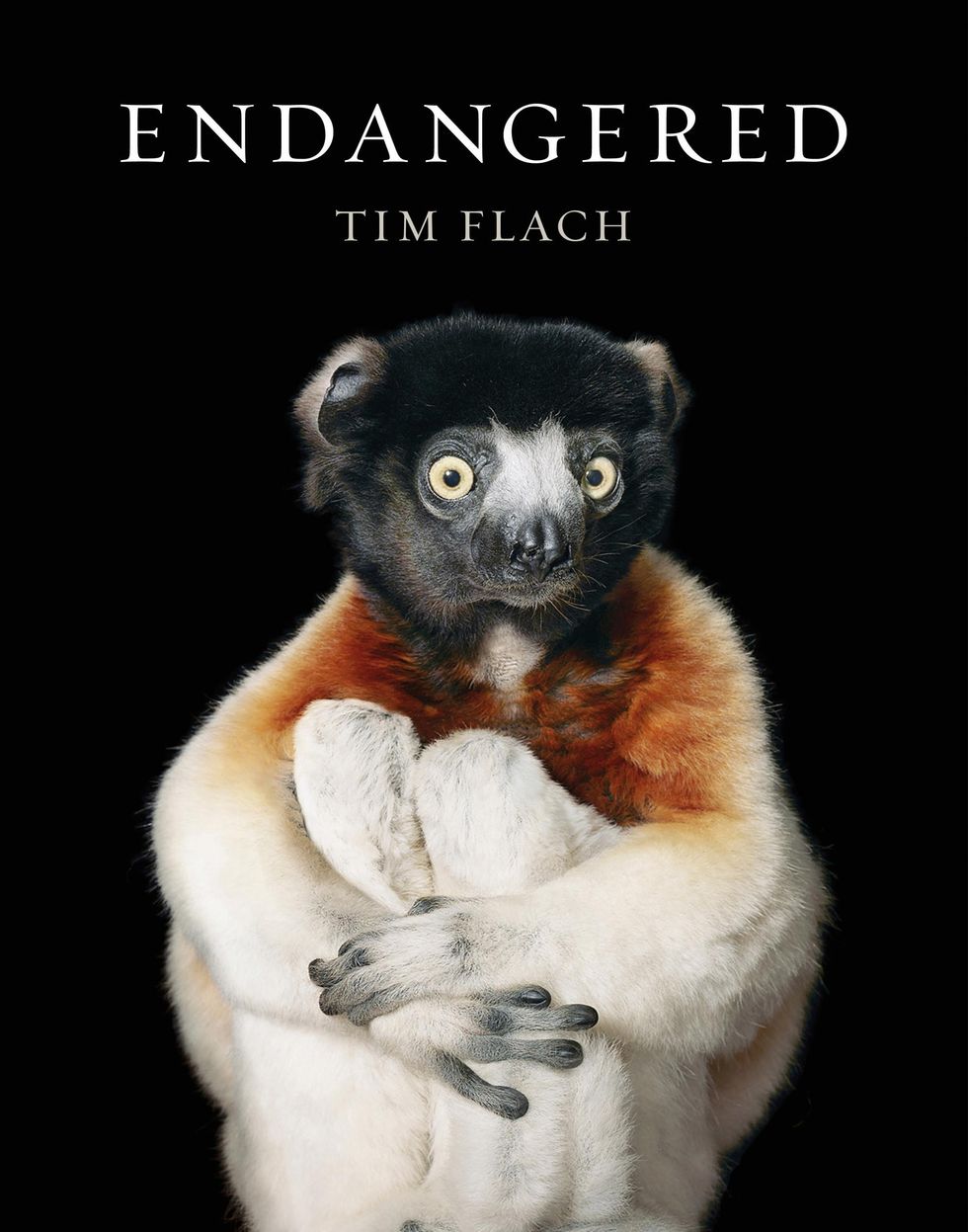Viral
Darin Graham
Jan 02, 2018
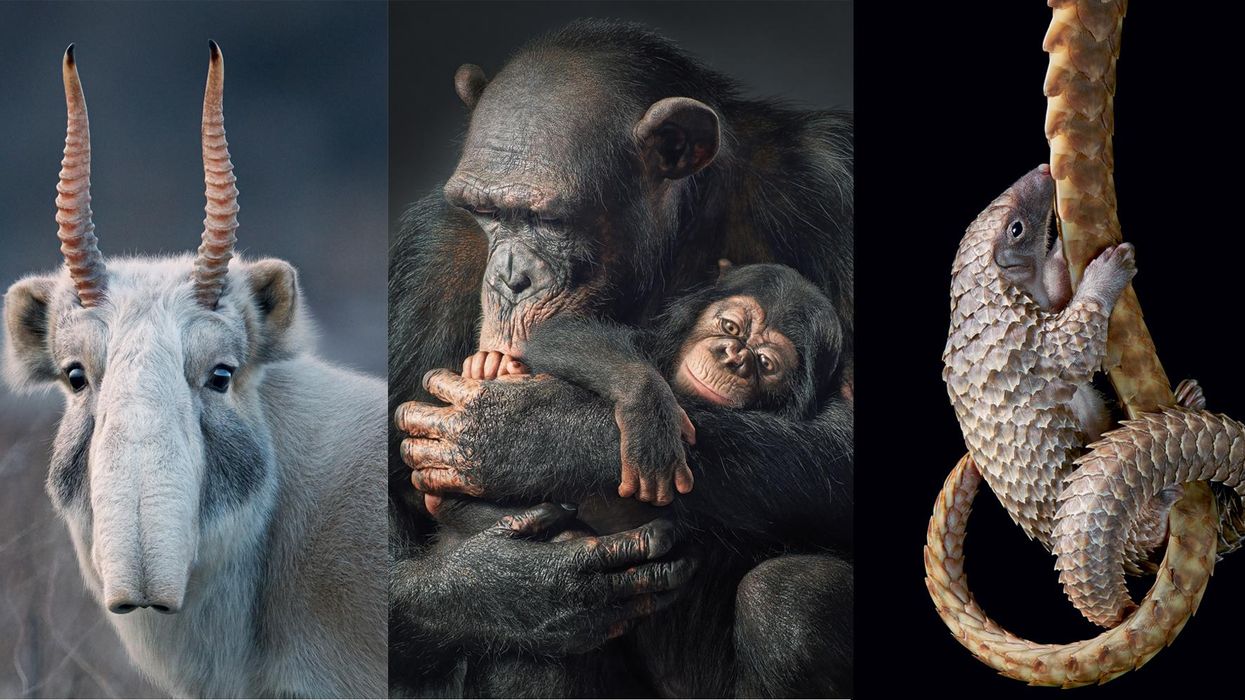
Picture:
© Tim Flach, from Endangered by Tim Flach
A London-based photographer has spent two years travelling to some of the most remote habitats in the world to capture the world's endangered species before they disappear for good.
Tim Flach, who has published his stunning and deeply powerful images in his book Endangered, documents the challenges these animals face, all because of the human race
The project explores the plight of threatened species affected by deforestation, hunting and poaching.
Flach says:
I wanted an array of endangered species which represented various aspects, some better and some lesser known.
Here are just a few of the images from Endangered.
Saiga Antelope
International Union for Conservation of Nature (IUCN )Red List: Critically endangered
One of the animals Flach managed to track down was the critically endangered Saiga antelope. The Saiga's natural habitat is in the vast Eurasian Steppe area stretching through Romania, Moldova, Ukraine, Russia, Mongolia and more.
On his Instagram, Flach writes:
Here's the magnificent Saiga, who is relatively unknown and would probably feel at home in the cantina in Star Wars.
Flach said he pursued the Saiga in the area around the Caspian Sea during summer. He waited in a hideout close to where they go for water but says the summer temperatures distorted his photos. He added:
So we went back in the winter when it was -30C and I was lying down on the ground in camouflage for three days using the longest possible lens, and finally got the shot.
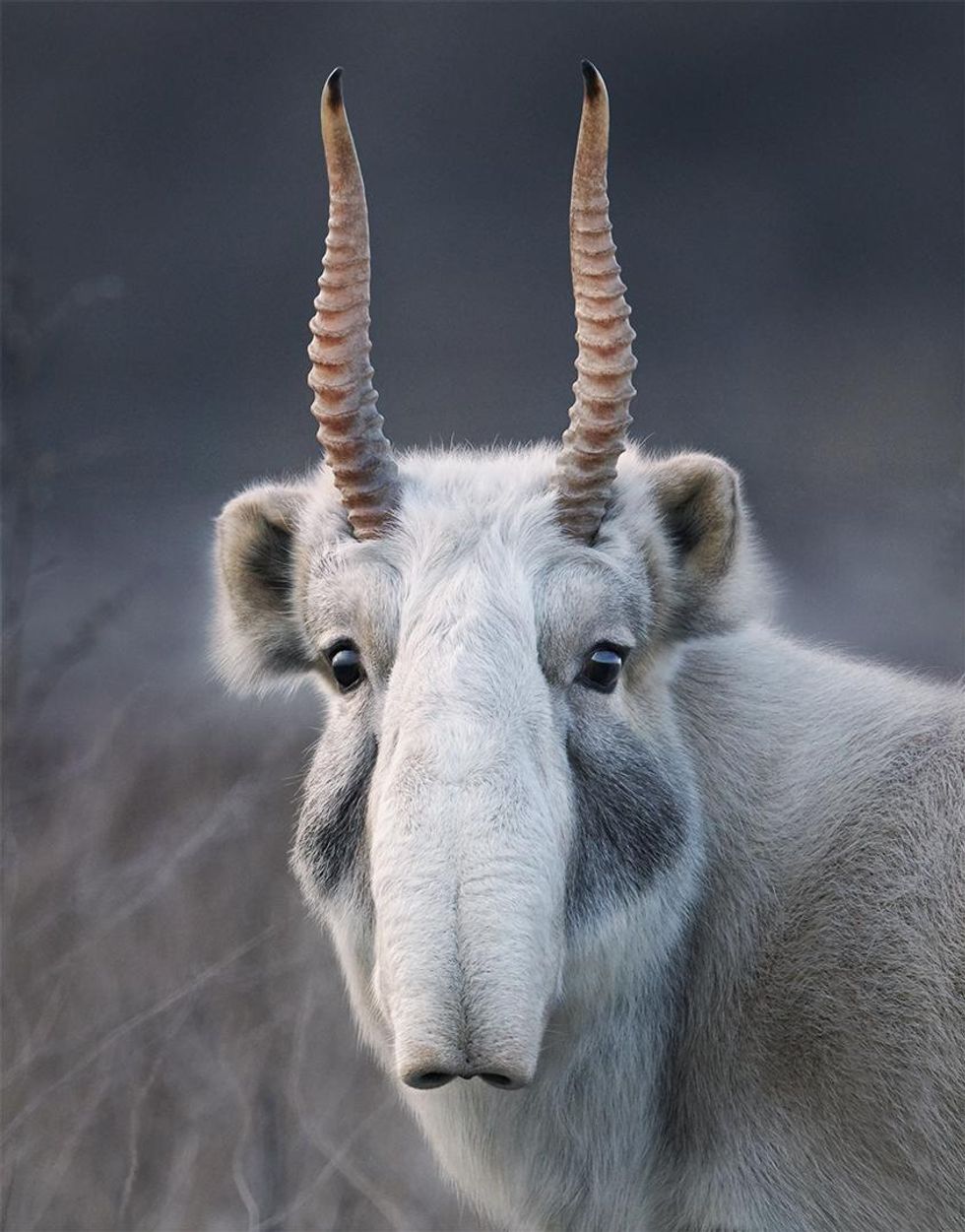
Military macaw
IUCN Red List: Vulnerable
Military macaws are reportedly one of the most sought-after species of parrot in Mexico.
Defenders of Wildlife estimated that 78,500 birds were caught each year for the illegal pet trade and that fewer than 10,000 are left today - spread over a patchy area of Mexico.
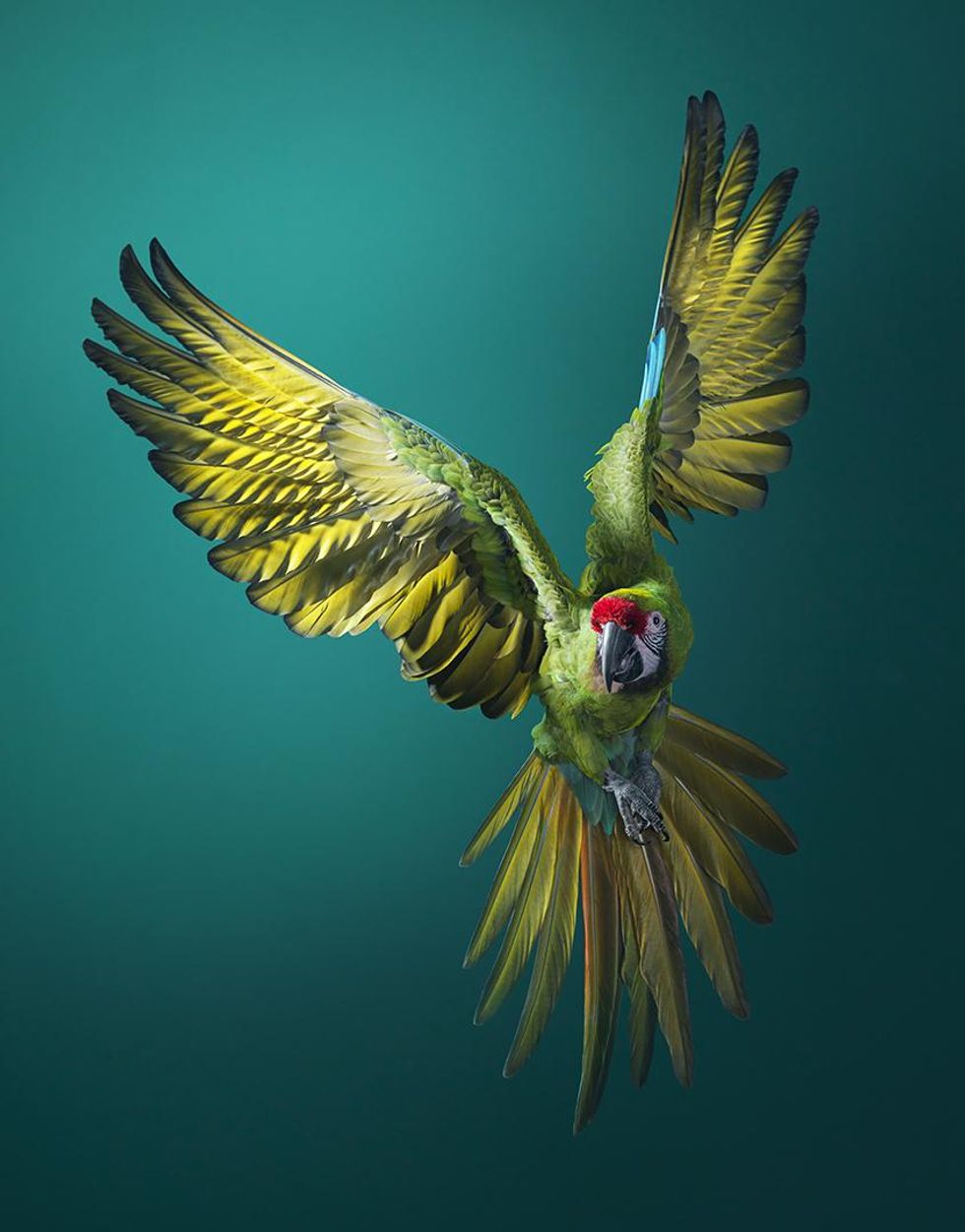
Hippopotamus
IUCN Red List: Vulnerable
On his Facebook page, Flach says:
Eradicating the ivory trade will be a tall challenge.
Hippo teeth are highly sought after but until law is enforced on the ground, Hippo fortunes will continue to founder.
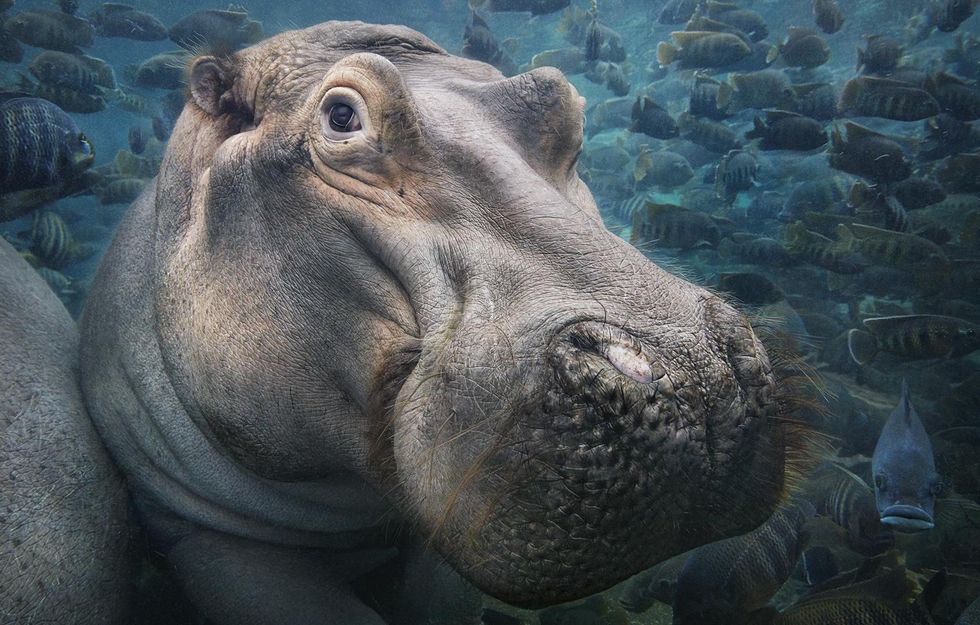
Snow Leopard
IUCN Red List: Endangered
Flach says:
The majestic snow leopard is one of the most endangered big cats, with its mountain territories shrinking due to farming and climate change, and an average of four snow leopards killed every week since 2008.
Around four to seven thousand remain in the wild.
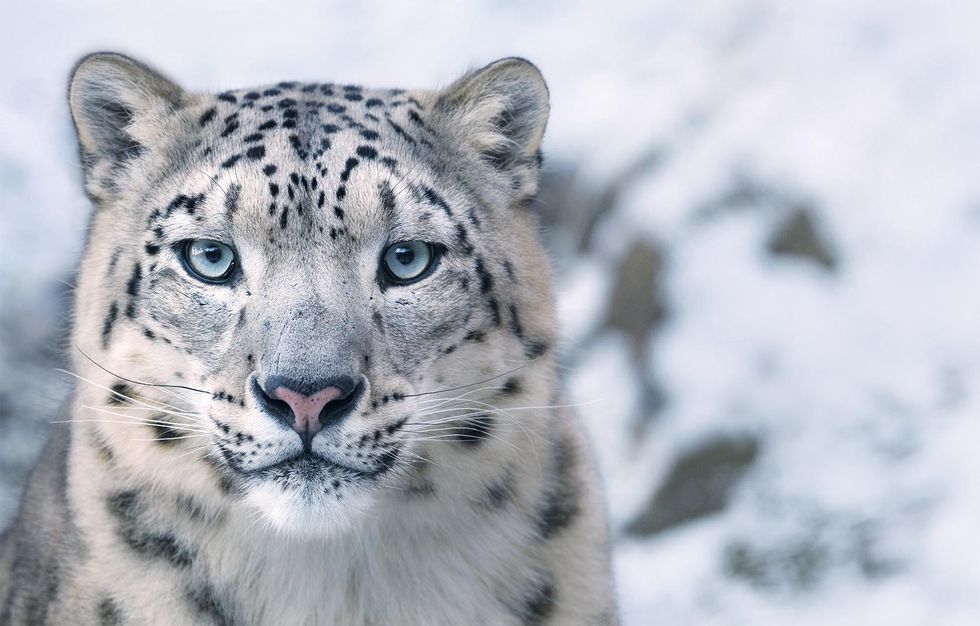
Monarch Butterflies
IUCN Red List: Not evaluated
Scientists are increasingly concerned about the monarch butterfly. In summer, they migrate to the east of the Rocky Mountains. Their numbers are decreasing and their survival is threatened by a reduction in milkweed plants in that area.
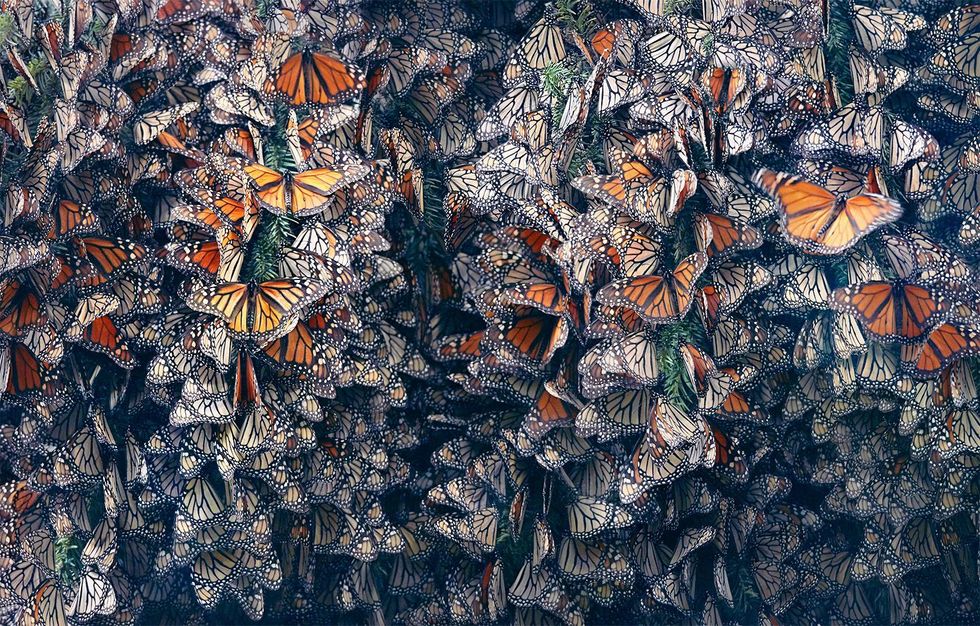
White-bellied pangolin
IUCN Red List: Vulnerable
Pangolins are considered the most trafficked animal in the world, writes Baille. They're hunted for their meat in Africa and in Asia for their scales.
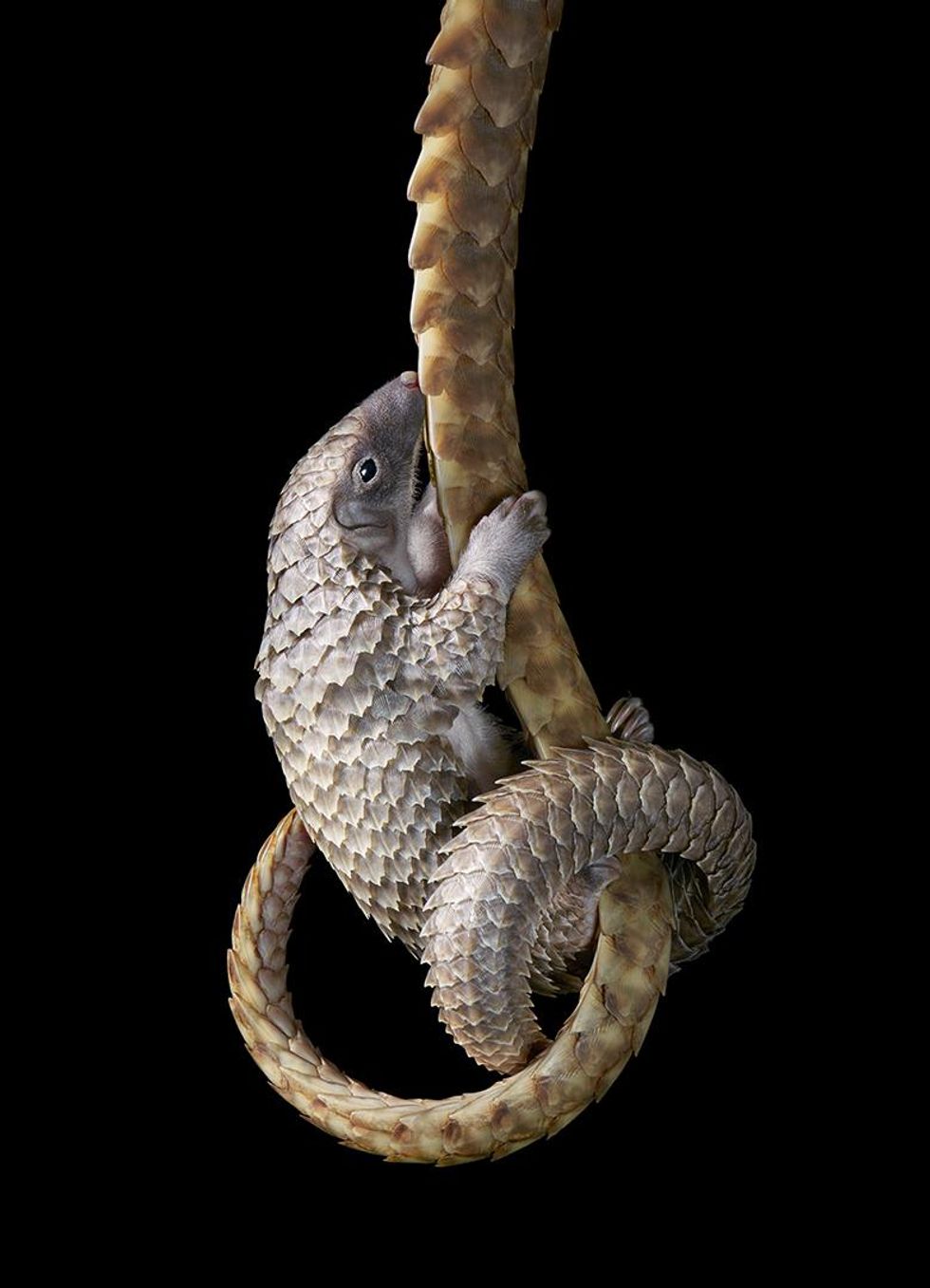
Bengal tiger
IUCN Red List: Endangered
The numbers of Bengal tigers decreased as a result of the loss of their habitat across India. Today, over 50 tiger reserves take care of the remaining 2,500 individuals.
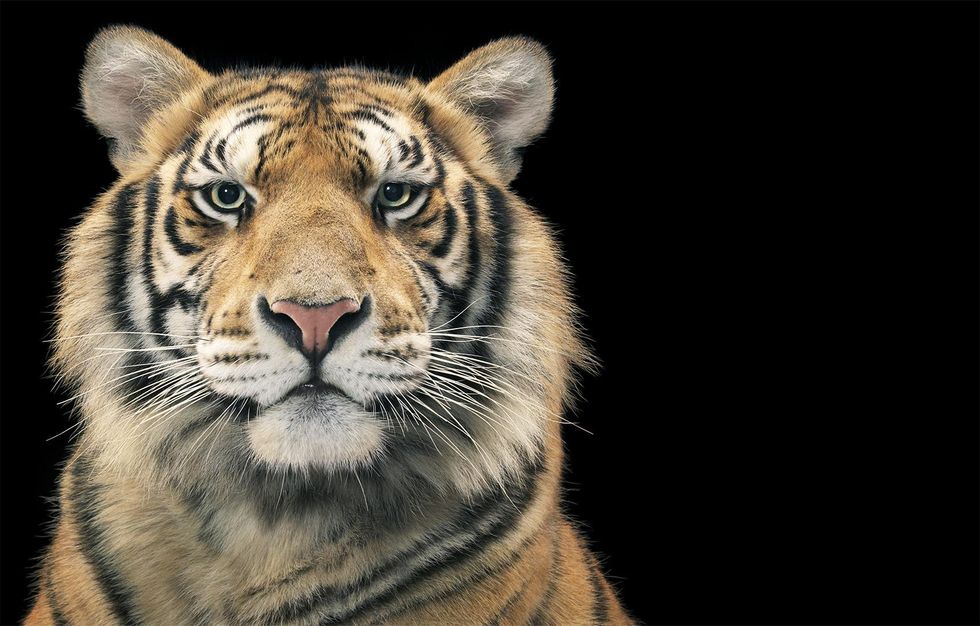
You can find out more information about Endangered here, and you can see more photographs from the collection here.
More: These are the countries with the most endangered animals
Top 100
The Conversation (0)
